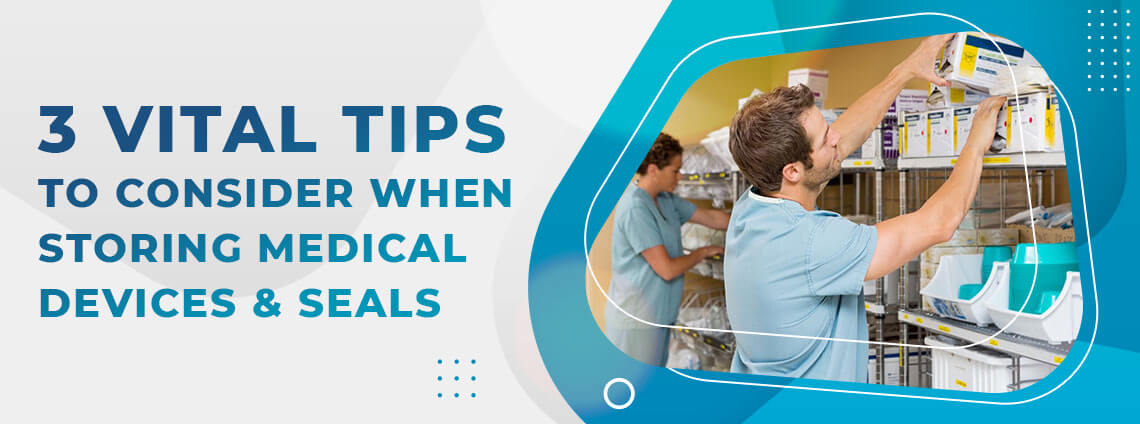3 Vital Tips to Consider When Storing Medical Devices & Seals
Many countries have faced the issue of the depletion of medical stockpiles amid the COVID pandemic. It is to keep vital considerations in mind when storing medical devices that use rubber gaskets, seals, and O-rings.
PPE and medical devices both make use of rubber seals to ensure that they can be stored for many years. Making use of the right rubber materials for seals is important and even prevents equipment failures in the future when they are required the most. If you don’t store rubber seals properly, it could cause them to fail, which will eventually lead to seals breaking or hardening when stretched. crucial
For instance, surgical mask straps could break when pulled, and the seals in ventilators could crack as they lose resistance to pure oxygen and air exposure.
So, to prevent failures from happening, keep these vital tips in mind when storing medical devices and seals.
1) Select the Right Rubber Material
There are various types of rubber, and each contains dissimilar properties. However, one property that cannot be overlooked during storage is the oxidative resistance property of the elastomer. This usually occurs when free radicals from UV,ozone, or heat attack the elastomer.
A big component of resistance comes from the quality of the elastomer itself. If the saturation of the polymer chain is more, the resistance will be greater to such attacks. Rubbers like HNBR, FKM, Silicone, EPDM, are ideal materials for long-term storage.
2) Ensure Proper Storage
The ideal storage conditions for medical devices with rubber seals are the following:
Light: Ensure protection from light sources such as artificial light and direct sunlight.
Temperature: 38 °C or below 100 °F
Humidity: If the medical equipment or PPE are not stored in sealed moisture-proof bags, the humidity must be less than 75% in the storage room.
Ozone: The storage room must contain equipment that can generate ozone.
3) Lubrication Must be Compatible
Many medical devices use lubricants. However, it is vital to ensure the lubricant is compatible with the device. For PPE, silicone oils are compatible. For medical devices, medical silicone oil is a common lubricant that’s used.
If the device contains silicone seals, silicone oil must be avoided as it can cause the seal to swell. If the device contains medical-grade liquid silicone rubber, fluoro or, phenyl-based silicone oils are ideal. They will prevent seals to swell and stop working after storage.
We hope you have found this blog to be useful. So, the next time you assemble medical devices for long-term storage, keep these vital tips in mind.
At Harkesh Rubber, we design seals of various shapes and sizes. We offer an extensive range of molded rubber products that are ideally suited for the medical industry. We can help you select and design the appropriate rubber material for your gasket, o-ring, or seal. If you have any more queries, get in touch with us today, and our experts will guide you through every step of the way!








